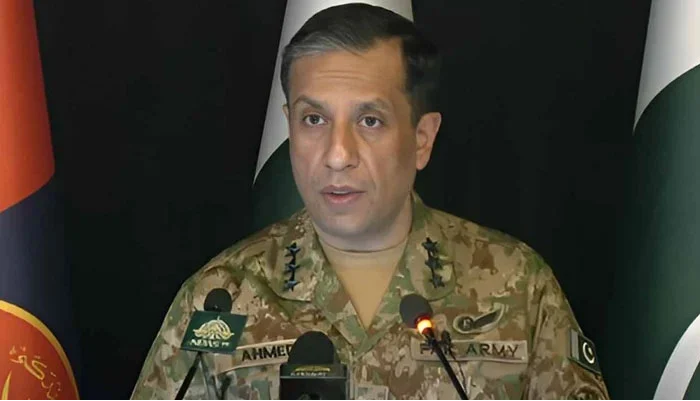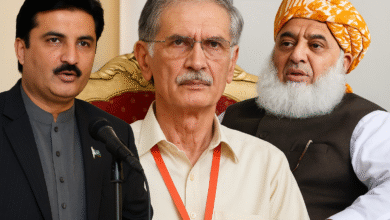Nuclear Brinkmanship: The World Cannot Afford Misadventures

By Ghulam Haider Shaikh
The recent statement by Pakistan’s Director General of Inter-Services Public Relations (DG ISPR), warning against any adventurism concerning the country’s nuclear program, serves as a critical reminder of the fragility of global peace in a nuclearized world. His words—“the horrific consequences of such misadventures may not be bearable for the world”—resonate far beyond Pakistan’s borders and into the very heart of international security debates.
Pakistan’s nuclear deterrent has long been the centerpiece of its national defense policy. Developed in the wake of existential threats from its eastern neighbor, it is widely regarded as a strategic equalizer in a region marked by conventional asymmetry. However, any discourse about nuclear weapons inevitably carries with it the specter of catastrophe—not just for South Asia, but for the entire planet.
The DG ISPR’s statement must be viewed against a backdrop of rising geopolitical tensions. The increasing frequency of provocative remarks from Indian political and military figures about pre-emptive strikes on Pakistan’s strategic assets has not gone unnoticed in Islamabad. Such rhetoric, though often dismissed as political posturing, undermines regional stability and raises the risk of miscalculations.
History offers sobering lessons. The Cuban Missile Crisis of 1962 demonstrated how quickly great powers can stumble toward nuclear Armageddon, only to pull back at the eleventh hour. The subcontinent, however, has no such precedent for successful de-escalation once hostilities begin. With both India and Pakistan in possession of sizable nuclear arsenals, any conflict escalation could spiral into mutual destruction.
The international community, too, cannot afford complacency. Major powers must discourage saber-rattling in South Asia and push for renewed dialogue on strategic stability. The recent shift in global geopolitics—with great power rivalries resurging and arms control treaties fraying—makes such diplomacy even more urgent.
For Pakistan, nuclear weapons are not tools of aggression but a deterrent born out of necessity. Its program is tightly controlled under robust command-and-control structures, recognized even by adversaries for their reliability. Yet, as the DG ISPR rightly points out, the mere existence of these weapons means the margin for error is razor-thin. Any misstep, deliberate or accidental, could unleash consequences beyond calculation.
It is imperative that both regional actors recommit to restraint. Confidence-building measures (CBMs), military-to-military hotlines, and renewed Track-II diplomacy could serve as essential safeguards against escalation. Furthermore, international watchdogs and forums must avoid double standards—where one nuclear-armed state’s provocations are overlooked while another’s defensive posture is criticized.
The world has entered an era where nuclear brinkmanship is no longer the exclusive domain of Cold War superpowers. Regional players, too, hold the power to destabilize or secure global peace. In such a reality, the DG ISPR’s cautionary words should not be dismissed as rhetoric; they are a clarion call for collective responsibility.
As technology advances and geopolitical rivalries intensify, humanity faces a stark choice: strengthen the norms and structures preventing nuclear conflict, or gamble on the hope that luck will forever prevent the unthinkable. The latter is a risk too great for any generation to take.
The price of failure would not be borne by one nation or one region alone—it would be paid by all.




